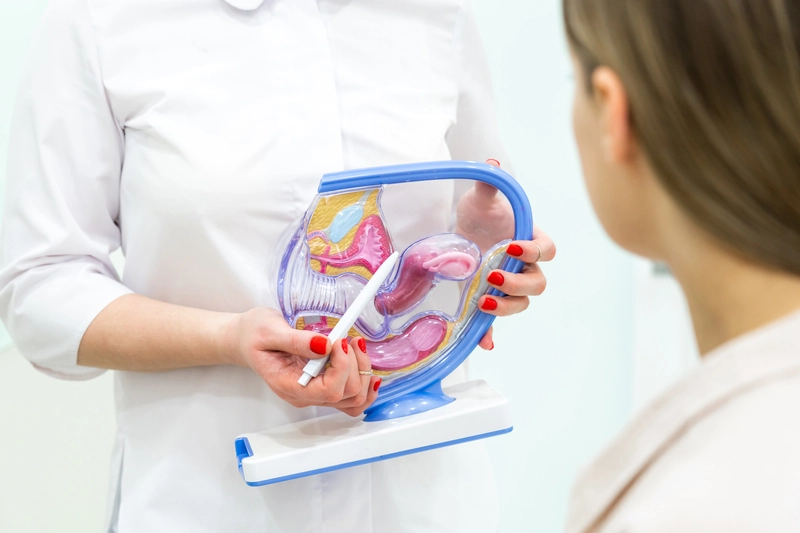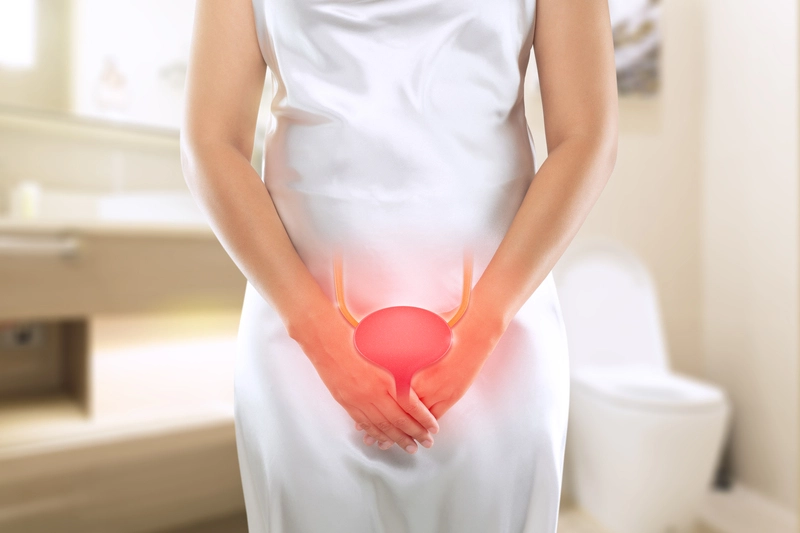Urinary Incontinence
Urinary Incontinence Treatment: The Journey to End Urinary Incontinence Problem... We face a problem that negatively affects the quality of life of women but often remains hidden = Urinary Incontinence. This condition, which has become a disturbing presence at every moment of life, is no longer a problem with the treatments successfully performed by the expert team led by Op. Dr. Meltem ERKMEN in Ankara.
Urinary Incontinence, which develops under the influence of many conditions from pelvic floor muscles to hormonal changes, obesity to genetic factors, is solved in sterile clinical conditions and in great confidentiality. In this article, we invite you to open the doors of a healthy and happy life by approaching the causes of urinary incontinence from a wide perspective to treatment options. Are you ready for this journey to leave the troubles of urinary incontinence behind?
Urinary Incontinence is one of the most common problems today and seriously affects the quality of life of people. This problem, which occurs for different reasons, is known as a disease that women are especially exposed to. However, men may also be exposed to Urinary Incontinence at a certain period of their lives.
Urinary Incontinence occurs as a result of a combination of various factors. Among these factors, the most prominent conditions are;
- Weak Pelvic Floor Muscles: Factors such as pregnancy, childbirth, heavy lifting can weaken the pelvic floor muscles.
- Hormonal Changes: Hormonal changes during menopause can cause urinary incontinence.
- Genetic Factors : Individuals with a family history of urinary incontinence may be more likely to have this problem.
- Obesity : Excess weight may increase intra-abdominal pressure and predispose to urinary incontinence.
can be stated as.
This problem, which negatively affects the social and private life of individuals, is solved with personalized treatment plans under the control of a specialist physician. The most preferred treatment methods for Urinary Incontinence Treatment include non-surgical techniques such as Pelvic Floor Exercises, Drug Therapy, Physical Therapy, Diet & Hydration and surgical applications such as Urinary Incontinence Surgery.
The doctor who should be consulted by people with urinary incontinence is a gynecologist and obstetrician. Op. Dr. Meltem ERKMEN and her team are updating their treatment opportunities every day to provide you with the best service with their experience in this field. You can contact us immediately to get rid of urinary incontinence with a safe and comfortable process...
Advantages of Urinary Incontinence Treatment under the supervision of our Specialist Physician in Ankara;
- Experience of the Expert Team: Our doctor successfully serves in Urinary Incontinence treatments with his long years of experience.
- Sterile Clinic Conditions : Our clinic in Ankara offers an environment that meets the highest level of sterilization and hygiene standards.
- Privacy and Security : The privacy and safety of our patients is always our first priority. Our treatments are carried out within the framework of respect for these values.
can be expressed as.
By contacting our experienced team for your urinary incontinence, you can get the most reliable and effective treatment under the supervision of our specialist physician. You can take the first step for a healthy and happy life by contacting us using our communication channels...

What is Urinary Incontinence
Urinary Incontinence refers to the inability of a person to control their urine without their will. This condition, which can be associated with factors such as weakness of the pelvic floor muscles, hormonal changes, obesity, is a health problem that especially affects women. Vital changes such as pregnancy, childbirth and menopause can predispose to the emergence of urinary incontinence.
Why Urinary Incontinence Occurs
Urinary Incontinence can occur due to many reasons. Weak pelvic floor muscles, hormonal changes, obesity, genetic factors and age-related changes play an active role in the occurrence of this condition. The combination of these factors determines the severity and frequency of urinary incontinence.
Conditions that cause urinary incontinence problems today;
- Weakening of Pelvic Floor Muscles
- Changes in Hormone Levels
- Obesity (Overweight)
- Genetic Factors
- Aging
- Urinary Tract Infections
- Vaginal Infections
- Difficulties During the Birth Process
- Bladder Inflammation
- Diabetes (Diabetes)
- Constipation
- Stress and Insomnia
- Menopause
- Kidney Stones
- Sedative and Diuretic
- Blood Pressure Medicines
can be specified as
Causes of Urinary Incontinence in Women
The fact that the urethra is shorter in women compared to men causes urinary incontinence to occur more frequently. In addition, the urethra is damaged during pregnancy and childbirth in women. When this damage reaches serious levels, it triggers the problem of Urinary Incontinence.
Especially women who have difficult childbirth, who give birth more than once, who give birth to overweight babies are very common with the problem of Urinary Incontinence. In addition, excess weight gained during pregnancy can also lead to this problem.
Today, almost one in every 4 women suffer from Urinary Incontinence. Other causes of this condition include Menopause, Constipation and Genetic Features. For example, women whose 1st degree relatives have Urinary Incontinence are 3 times more likely to develop this condition than other individuals.
Urinary Incontinence is detected as temporary or permanent, and appropriate treatment techniques are applied in both cases. However, while Urge Type Urinary Incontinence is seen at a rate of 20%, Stress Type Urinary Incontinence occurs at a rate of 50%. Mixed Type Urinary Incontinence accounts for 30% of cases.
What is Good for Urinary Incontinence
There are many effective methods to alleviate or control urinary incontinence. Options such as pelvic floor exercises, proper diet and water consumption, medication, lifestyle changes and surgical intervention can be applied depending on the individual's condition and needs.
Among the most commonly used methods within the scope of Urinary Incontinence Treatment;
- Urinary Incontinence Medication
- Urinary Incontinence Exercises
- Urinary Incontinence Surgery
- Urinary Incontinence Herbal Treatment
- Diet and Hydration
can be shown.
Which doctor to go to for urinary incontinence
People suffering from Urinary Incontinence should consult an Obstetrician and Gynecologist. Doctors in this field specialize in understanding the origin of Urinary Incontinence problems and providing effective treatment options.
Which Department Treats Urinary Incontinence
Individuals suffering from urinary incontinence can be treated by specialists in the field of Obstetrics and Gynecology. People who apply to this department can get rid of the problem they are experiencing with the most appropriate treatment plan for them after the examination.
How Urinary Incontinence is Diagnosed
Diagnosis of urinary incontinence includes the doctor's clinical assessment, the patient's history, physical examination and, if necessary, further investigations. Using methods such as urine tests, urodynamic tests, pelvic examinations and imaging studies, the doctor can make an appropriate diagnosis. He or she can create a personalized treatment plan.
Among the tests used in the diagnosis of Urinary Incontinence;
- Urine Analysis
- Bladder Diary
- Pelvic Ultrasound
- EMG (Nerve Measurement) Test
- Cystometry
- Uroflovmetry Test
- Cystoscopy
- Invasive Urodynamics
- Post-Void Residual
may be indicated.

Urinary Incontinence Treatment
For people suffering from urinary incontinence, it is aimed to solve the problems by applying non-surgical treatment methods first and whenever possible. In cases that cannot be treated in this way, surgery can be applied. In this context, Urinary Incontinence Treatment is examined in 2 different scopes as non-surgical and surgical techniques.
1-) Non-Surgical Urinary Incontinence Treatment Methods
In people with Urinary Incontinence, first of all, non-surgical methods are applied and results are tried to be obtained. These techniques respond with a high success rate in patients with Urge Urinary Incontinence. Non-surgical treatment methods applied to people with Urinary Incontinence include Exercises, Behavioral Regulations and Medication.
First of all, behavioral adjustments and exercises are used. For example, the process is followed by ensuring that the patient who is found to drink too much water drinks less water. Of course, in this process managed under the control of a doctor, the person is prevented from drinking less water than the body needs.
With the exercises applied to the person, the problem of Urinary Incontinence due to Overweight is tried to be prevented. The process is monitored by bringing the body mass index of the individual to a healthy level. In addition, the Pelvic Muscles of the person are tried to be strengthened with the exercises given.
While strengthening the Pelvic Muscles with Kegel Exercises, which are especially applied in women, genital sagging that may occur is also prevented. If behavioral modification and exercises do not yield results, medication is used.
In the process of Urinary Incontinence Treatment with Medication, the patient is given different medications for Urinary Incontinence problems caused by Urinary Incontinence caused by Urinary Incontinence or Stress. The diseases that cause Urinary Incontinence are monitored and the medications to be used are regulated by the specialist doctor.
Thanks to the medications used, contractions in the bladder are tried to be regulated and bladder capacity is tried to be increased. If there is still no improvement after all these non-surgical applications, operational techniques may be required.
You can access our article, in which we touch on every issue related to Urinary Incontinence Treatments and examine non-surgical methods in detail, from the link meltemerkmen.com/idrar-kacirma-tedavisi.
2-) Surgical Urinary Incontinence Treatment Methods
Stress-induced Urinary Incontinence in people is treated with surgical applications. The most commonly used methods for surgical treatment of Urinary Incontinence are TOT and TVT surgical techniques.
After these operations, which take an average of half an hour, the patient can be discharged the next day. These surgeries, which have a success rate of over 90%, are applied in case of failure to obtain successful results after non-surgical treatments such as drug therapy.
You can click on the link meltemerkmen.com/idrar-kacirma-amiyati to review our article on Urinary Incontinence Surgeries.
Urinary Incontinence Treatment Ankara
Our clinic in Ankara, Turkey is led by Op. Dr. Meltem ERKMEN and serves as a reliable and expert center offering effective and customized treatment options for Urinary Incontinence problems. Our sterile clinical conditions and experienced team utilizes its expertise in the field of Gynecology to the fullest by offering a special approach to the health of our patients.
Within the scope of Urinary Incontinence Treatment, we aim to provide a healthy, comfortable and reliable solution to our patients with applications performed under the supervision of our specialist physician in Ankara. We adopt the principle of improving the quality of life of our patients by prioritizing confidentiality and safety standards in our treatments specially planned for each patient.
Without wasting time, you can contact us using our communication channels and get rid of all the problems you are exposed to for different reasons and discover the advantages of receiving Urinary Incontinence Treatment with an approach that values your health problems.
Dr.Meltem Erkmen
TREATMENT INFORMATION
Number of Operations
Operation Duration
Anesthesia
Sensitivity Process
Full Recovery
Persistence of Results
Length of Stay in Hospital
Why does Urinary Incontinence occur?
Urinary incontinence is associated with weak pelvic floor muscles, hormonal changes, obesity, age-related factors and childbirth.
How old is Urinary Incontinence normal in children?
Urinary incontinence in children is considered normal until the age of 5. This age limit may vary depending on the child's development.
What is good for Urinary Incontinence?
Treatment options such as pelvic floor exercises, lifestyle changes, medication and surgical intervention can be applied for Urinary Incontinence.
Which Department Treats Child Urinary Incontinence?
In case of Urinary Incontinence in children, specialist physicians in the field of Pediatric Urology or Pediatric Neurology can be consulted.
How Many Weeks Does Urinary Incontinence Start During Pregnancy?
Urinary Incontinence during pregnancy can occur later in pregnancy, especially as the uterus grows.
How long does Urinary Incontinence last after prostate surgery?
Urinary Incontinence after prostate surgery lasts for a few weeks to months, although it varies from individual to individual.
Which department deals with Urinary Incontinence in women?
An Obstetrician and Gynecologist can be consulted for the problem of urinary incontinence in women.
Which doctor to go to for Urinary Incontinence?
Urology or Obstetrics and Gynecology specialists can be consulted for Urinary Incontinence.
How to Prevent Urinary Incontinence?
Exercises that strengthen the pelvic floor muscles, healthy lifestyle and appropriate treatment methods can be applied to prevent Urinary Incontinence.
Which disease is Urinary Incontinence a symptom of?
Urinary Incontinence can be a symptom of pelvic floor dysfunction, urinary tract infections or urological problems.
When does Urinary Incontinence start during pregnancy?
Urinary Incontinence during pregnancy can occur later in pregnancy, especially as the uterus grows.
Which department deals with Urinary Incontinence in the elderly?
Urology or Geriatrics specialist can be consulted for Urinary Incontinence in the elderly.
How to Treat Urinary Incontinence?
Urinary Incontinence Treatment can include various methods such as pelvic floor exercises, lifestyle changes, medication and surgical intervention.
How is Urinary Incontinence Examination Performed?
The Urinary Incontinence Examination includes a physical examination by the doctor, the patient's history, urine tests and imaging studies if necessary.
How old is Urinary Incontinence normal?
Urinary Incontinence is considered normal in childhood until the age of 5. This may vary depending on individual development.
Does incontinence of urine impair ablution?
Yes... In case of incontinence, wudoo' is broken.
Has anyone had Urinary Incontinence surgery?
Yes... In advanced cases, there may be cases of Urinary Incontinence that require surgical intervention.
Does Urinary Incontinence occur during pregnancy?
Yes... Urinary Uncontinence may occur during pregnancy, especially with the growth of the uterus.
Does Urinary Incontinence break the fast?
No... Urinary Incontinence does not break the fast.
Why does Urinary Incontinence occur while sleeping?
Urinary Incontinence while sleeping can occur as a result of loss of bladder control during sleep.









